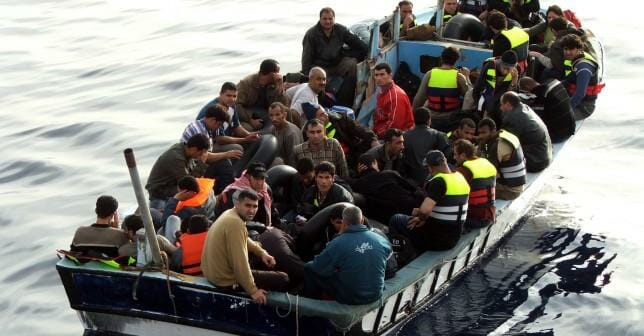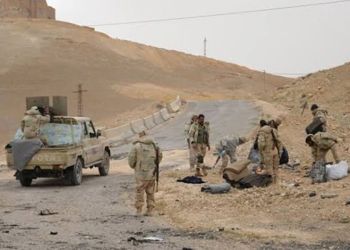This post is also available in:
![]() العربية
العربية
D24 exclusive report:
Deir Ezzor had long been subjected to exclusion and was entirely disregarded by both Bashar and his father, Hafed al Assad. In terms of education, it had merely one faculty of agriculture. Universities and faculties were unavailable for a long period before they were finally built and established a few years ago.
Even though institutions in Deir Ezzor were characterized by their efficient and competent members, many of them were completely left out and were not appointed in the administrations of the province. Most of the administrations were dominated by employees from outside the province, causing the people to move to other provinces in Syria or travel abroad heading to destinations like the Gulf countries.
They Stood by the revolution during its hardest and toughest times
As the Syrian revolution commenced, many of those talented creatives joined its ranks and started taking part in revolutionary activities by taking it to the streets, protesting peacefully and calling for freedom and dignity. Many of them were arrested while some others (mainly university students, doctors, dentists, lawyers and engineers…etc.) were assassinated. Assad security forces would come to their offices, assault and insult them before they detain and threw them in prisons where they would share cells with criminals and bandits.
As the revolution shifted from peaceful protests to armed uprising, the doctors occupied a valued and significant position. After the role of doctors in Deir Ezzor had been limited to the rescue of wounded protesters or those shot dead by Assad forces in their clinics or nursing homes from June 2012 to the same month in 2014(which is also the time during which most of Deir Ezzor province was liberated from ISIS), medical activists took another step and were able to build and establish a public health service center as an alternative to the government health system in the province whose role was diminished due to the war and brutality against civilians by the regime forces.
Al-Furat Hospital and the national hospital in the liberated areas in Deir Ezzor city at that time were heavily devastated as they were close to the battles zones and frontlines in the city. Later on, both the hospital of al-Mayadin and the hospital of al-Basel in al-Bukamal were destroyed and became out of function. In the meantime, medical activists attempted to operate the hospital of Modern Medicine in al-Mayadine after it was abandoned along with another hospital in west Deir Ezzor countryside by the regime health directorate.
According to reliable sources in the health directorate of Deir Ezzor, 2000 among 7500 employees were fired for political reasons from the directorate. The number of health institutions, which include hospitals, clinics and health centers, the rebels established in Deir Ezzor exceeded 18 institutions, and they were distributed spontaneously on the geography of Deir Ezzor province, with differences in the degrees of their efficiency and the ability to provide medical services depending on the availability of medical qualifications, conditions and medical resources.
Additionally, there were ambulances specialized in transporting severely wounded civilians from the liberated areas in Deir Ezzor city to the hospitals in the countryside or to Tel Abyad border crossing with Turkey. In the early stages of these newly established institutions in Deir Ezzor, the voluntary of the people of Deir Ezzor had played an important role in the continuation of their work, before international health care organizations intervened and funded the institutions.
The major success scored by these freshly established health institutions is mainly attributed to its talented and creative founders; medical activists from Deir Ezzor province who voluntarily worked under rough and ruthless conditions in the hospitals, providing services and doing the best they could to help treat civilians in need. The number of those volunteers did not exceed 400 persons; among them were at least 80 doctors who were members of the Syndicate branch of Doctors in Deir Ezzor, however, as ISIS took control over most of the province, special elites of Deir Ezzor were included at its top targets, as if the group wanted the creative minds to leave their province so that it would easily dominate and control the minds of the rest.
ISIS is held accountable for displacing them
Many of these talented creatives from Deir Ezzor strongly refused to bow to ISIS rules and practices. After the seizure of the province, the group imposed a total ban on lawyers and judges, and it went further by declaring them as apostates who left the fold of Islam. It also banned male doctors from curing females under the pretext that it goes against the Islamic teachings and Sharia. As a result of this extreme policy, the number of nurses and doctors diminished dramatically that a number of medical points in areas in Deir Ezzor were shut down due to ISIS pressure. Another reason was that after the health institutions came to a halt, the rate of unemployment was eventually increased, causing the talented creatives to move to Turkey, which was their well-liked destination.
Upon their arrival in Turkey, they unexpectedly ended up living in refugees camps. All of them moved to Turkey with the aim of achieving success and helping people from their county in need, but due to several obstacles that they faced on their way; they were unable to find a job, and the same goes for relief associations whose function was reduced after being dominated by corrupt members. Engineers, artists and teachers were not in a better situation than the doctors were.They were regarded as the building blocks for the reconstruction of government institutions in the liberated areas of Deir Ezzor; however, as ISIS took over most of the province, the group fired around 100 engineers along with 256 teachers.The teachers before ISIS seizure of Deir Ezzor were able to create a free educational institution, which made them nondependent on the regime-affiliated directorate of education.
Schools reached 18 areas within the province and teachers were able to conduct periodic exams for students.
Germany after Turkey
Turkey was the primary destination for those talented creatives; however, due to the deplorable condition they went through in there, they were pushed to travel by boats hoping to find another country to host them. Germany was the second destination for them, and there are approximately 100 doctors living in there and all of them have played a vital and outstanding role in the progress of the Syrian Revolution and formation of health centers before ISIS gained control over the province of Deir Ezzor.
The number of engineers and teachers living in Germany has been estimated to be 200. Most of them tried to stay in Deir Ezzor, however, because of ISIS atrocities and harassments; the difficulties facing them to practice their job in Turkey, all of these forced them to travel to Europe, wishing that one day they would have the chance to return to their homeland.
Building the nation is our main aim that necessitates unified efforts so that we will be able to rise and rebuild Syria again. Achieving a task like this would require that those talented creatives, who have never abandoned their revolutionary principles, should pick up their appropriate and befitting role in the intended reconstruction process once Syria is liberated.










